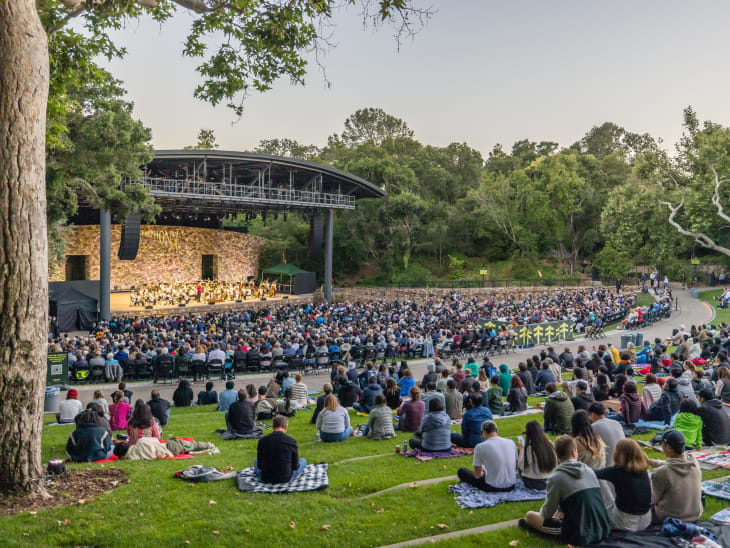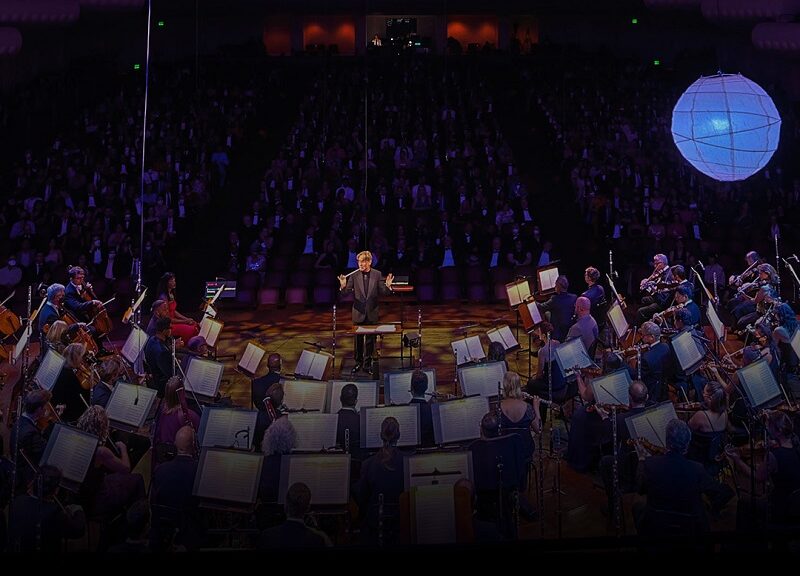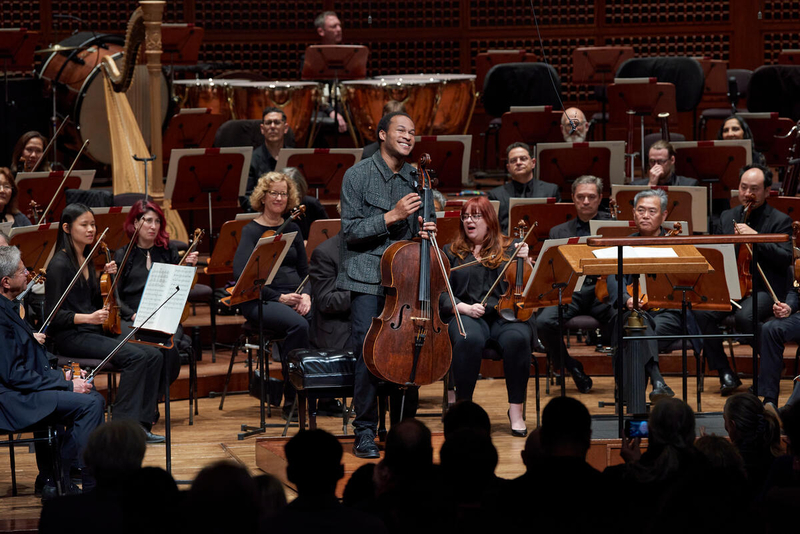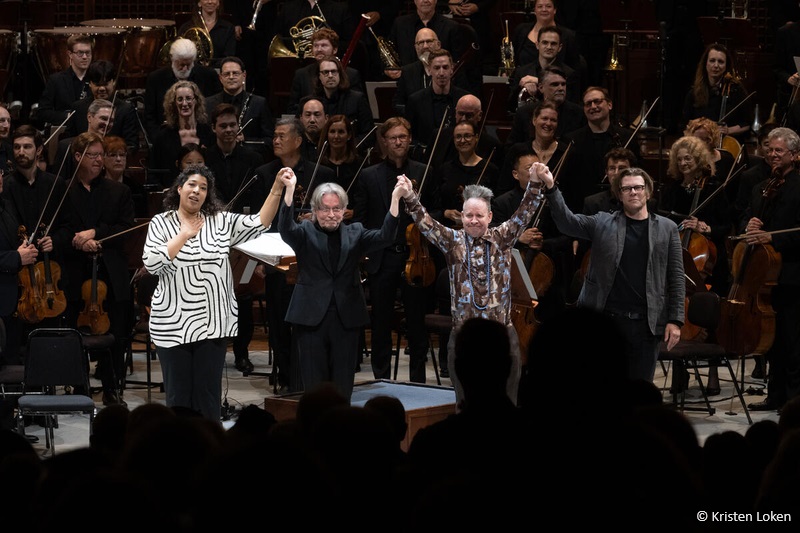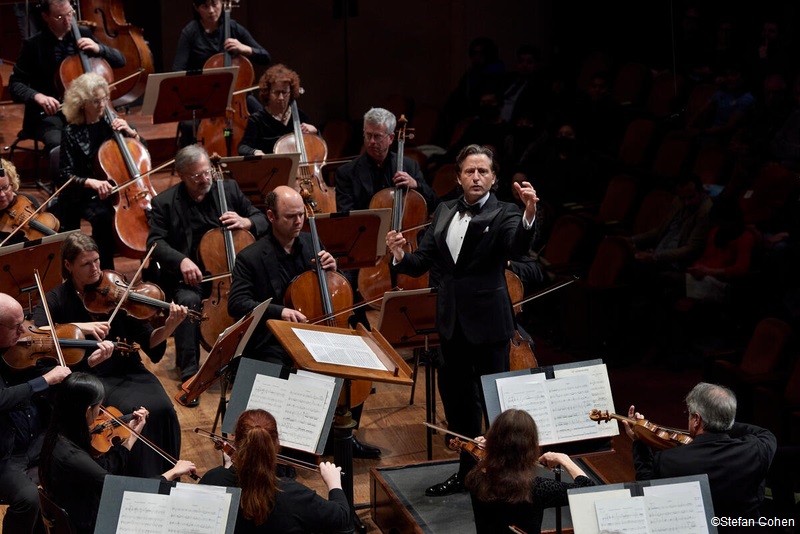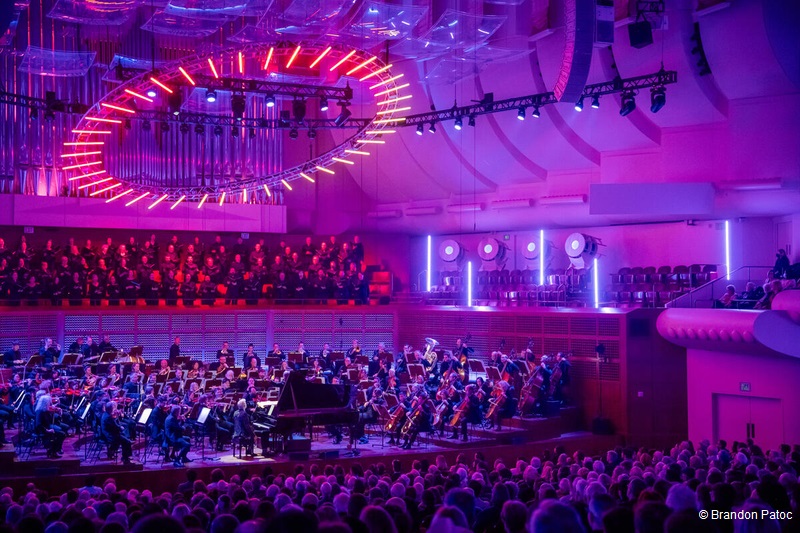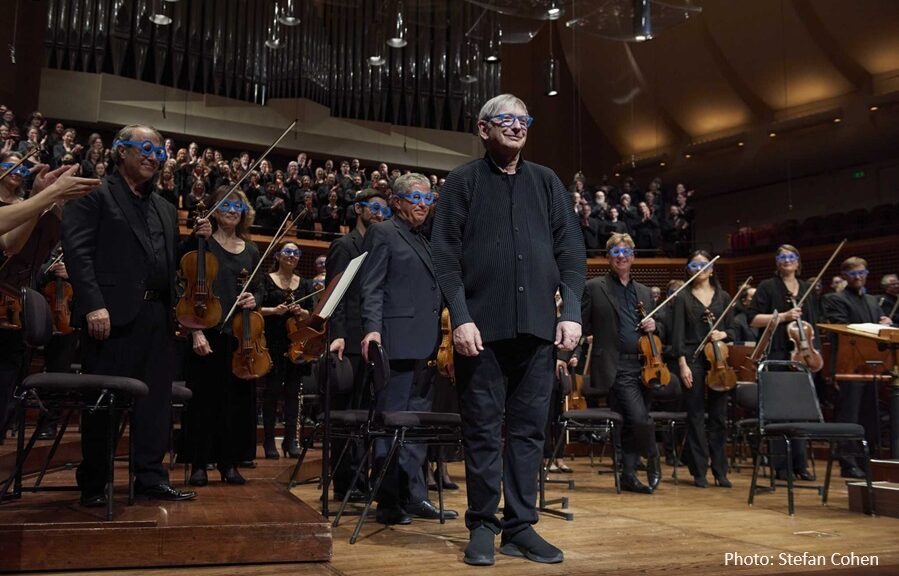EXEMPLARY PLAY DESPITE BUDGET CRUNCH AT SYMPHONY
I’ll come clean and confess, having at last expected some mediocrity at the S.F. Symphony’s rare “one-of” “Fate” concert July 25, clearly a filler on the schedule featuring a couple of emerging solo artists. Wrong, wrong, wrong. Violinist Stella Chen, originally from the Bay Area, was cool and dazzling in Barber’s less-than-stellar “unplayable” concerto. And the Korean-Canadian guest conductor from the Boston Symphony staff Earl Lee brought hushed admiration in his leading that old “Fate” war-horse, Tchaikovsky’s Symphony No. 4….

